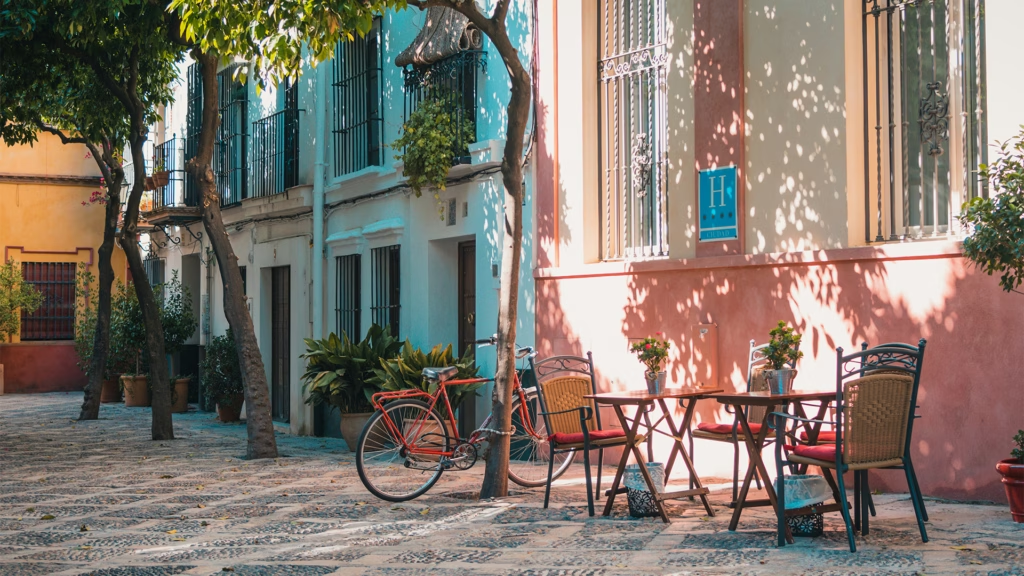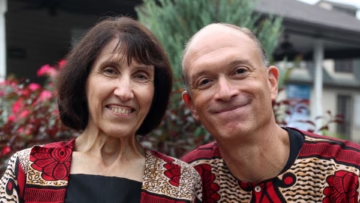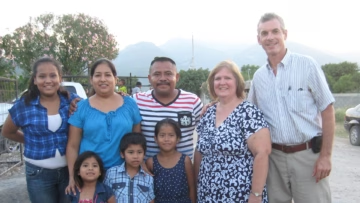
“I had it all set. And then I met this guy!”
M says with a chuckle, fondly remembering the dreams she once held for her future and how “this guy” – B – became her husband just a few years later.
They met at Messiah College (now Messiah University) in the 80s, but they couldn’t have been from more different worlds. B was born in Bulawayo, Zimbabwe, to missionary parents. His parents were crucial, early influences on his eventual call to cross-cultural ministry. He recalls their conviction to follow Christ “was something that was always close in conversation, almost on a day-to-day level.”
The possibility of missionary service required sacrificing her own vision for her life.
M was born in Havana, Cuba, in the early years of the communist revolution. Her family immigrated to the U.S. where her parents pastored Hispanic churches and supported many Latino families who had also recently immigrated. “I grew up in a cross-cultural setting without realizing it,” she says.
Their paths crossed at Messiah where they dated, fell in love, and planned a life together. As their graduation approached, B and M faced the question that every young adult must confront: what am I going to do with my life? B was sure of his call to missionary service; after running from God for a season, he sensed greater clarity.
However, M was less certain.
She had always desired to serve the Lord; along with B, she was an active member at Dillsburg (PA) BIC all through college and a dedicated volunteer in their youth program. But she never pictured herself as a missionary. “I had it all figured out,” she says now with a smile. “I was going to have the white picket fence, teach high school math, and have two and a half children.” Opening herself up to the possibility of missionary service included a willingness to sacrifice her own vision for her life.
Their relationship and future were at a crossroads. If they were going to continue, B asked her to at least consider it seriously. She did, asking God to reveal what he wanted for her life. Gradually, she surrendered, willing to explore the possibilities, and they started having conversations with World Missions leadership.
M remembers a pivotal conversation with Roy Sider, then director of World Missions. “What makes you think that you would be able to lead someone to Christ in another culture if you haven’t done it in your own?” he asked the young couple.
God was asking her to continue what she was already doing and learn to do it in another culture.
At that point, M had helped someone come to faith, and she suddenly realized that God was not asking her to become something she wasn’t. Instead, he was asking her to continue what she was already doing in her own culture and learn to do it in another culture. “I think I could do that,” she thought.
B and M were married in 1987 and deployed to Madrid, Spain, in 1988 with the goal of offering the hope of Christ to a post-Christian culture. As part of a church planting team, they helped establish two BIC congregations in Madrid and pastored one for twenty-four years. In 2020, God called them to leave the Madrid church in the capable hands of local leaders and relocate to Asturias on Spain’s northern coast.
Now, as business owners and active community members, they share the love of Jesus with their neighbors through relational discipleship. As they continue to walk in faith, their hope and prayer is for the love of Jesus to pour out to those who desperately need hope.
Names withheld for privacy.
This is part four of a four-week series about the risky steps of faith global workers took in obedience to Jesus and the legacy of service that followed.


